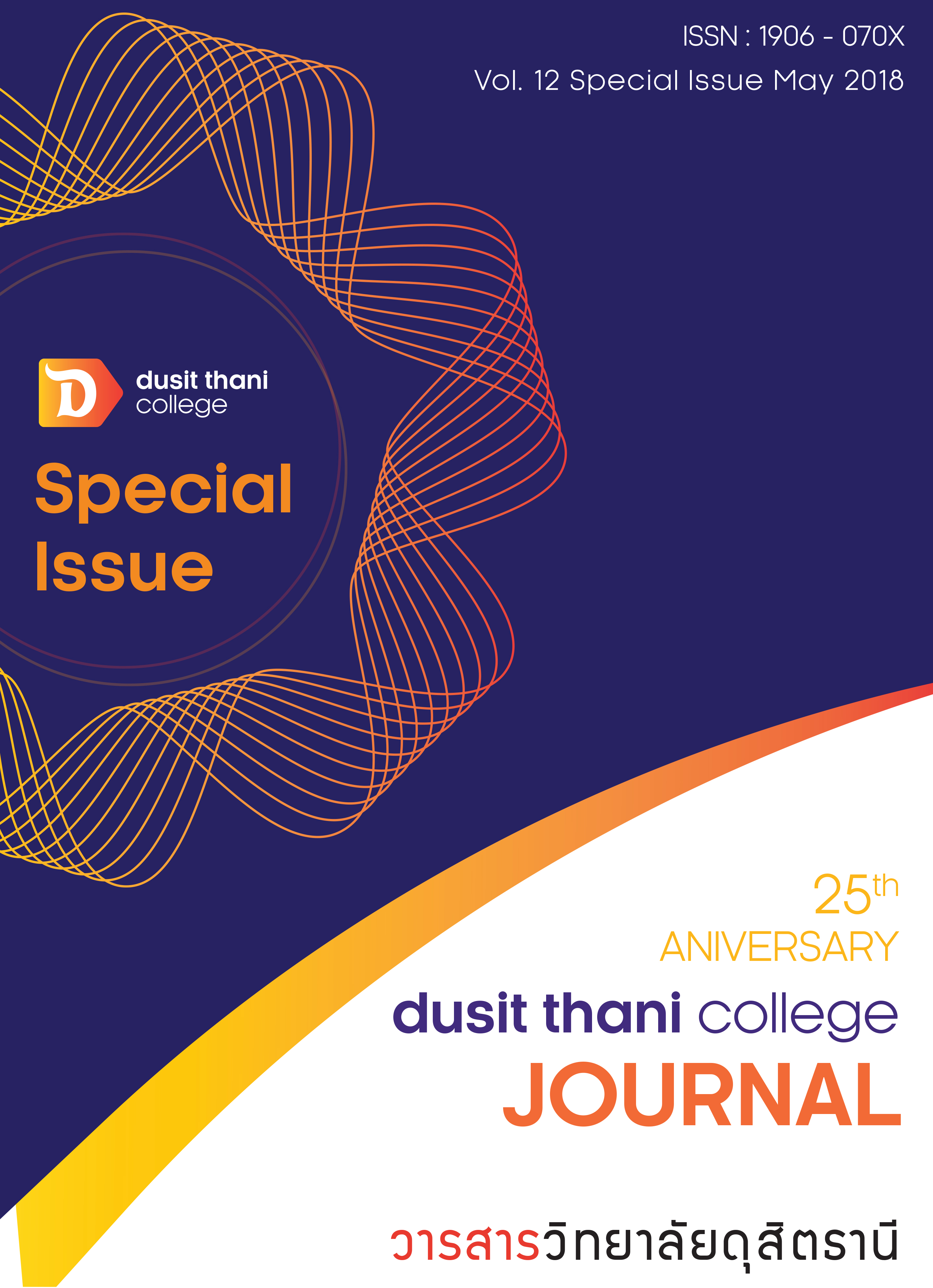The Policy Implementation Guidelines of Mutual Recognition Arrangement on Tourism Professionals: A Comparative Case Study of ASEAN Member Countries
Main Article Content
Abstract
The main objectives of this research were to 1) find the context of the implementation according to the policy of ASEAN mutual recognition arrangement on tourism professionals (MRA-TP), 2) analyse the situation and gap in the implementation process of the MRA-TP in ASEAN member states (AMS), and 3) study the policy implementation guidelines of MRA-TP. This study was based on qualitative research approaches through primary and secondary data from documentary research, and in-depth interviews. The Main concept of the study was derived from monitoring, evaluating, and benchmarking based on integrated theory of public policy implementation. The Samples for this research were 54 key informants from purposive sampling, selected from the groups of stakeholder in Thailand and representatives of national tourism organisations in 10 AMS.
The study have posited that the AMS deployed the policy of MRA-TP in ASEAN regional level which were then implemented at national level with different methods; the outcomes reflected gap in the stage of implementation. The main reason of different directions in the implementation process was from the different context and background of AMS. Therefore, the study showed that while Singapore and Brunei were less focused on the implementation of MRA-TP. Cambodia and Indonesia, on the other hand had efficiently geared MRA-TP towards their operations with great process. Firstly, they focused on the cooperation between network partners. Secondly, they planed the implementation process with PDCA principles, and lastly, they facilitated the establishment of a center of excellence for exchanging the best practices in MRA-TP.
Regarding guidelines of MRA-TP, implemented as a policy in Thailand, it should be based on PDCA principles and integrated theory of public policy implementation for developing the implementation process. Moreover, the implementation guidelines rely on the cooperation of the three main actors including: 1) government agencies, 2) tourism associations, and 3) educational institutions. This approach will lead to integrated work and achievable equality with other AMS through the following three pillars: 1) being the core of ASEAN tourism professionals’ knowledge and experience exchange in the region, 2) developing a system and mechanisms to support the development of ASEAN competency standard of tourism professionals, and finally 3) developing the intelligence center of MRA-TP.
Article Details
Article Screening Policy
- All research and academic articles to be published must be considered and screened by three peer reviews in the relevant field / article.
- All articles, texts, illustrations and tables published in the journal are the personal opinions of the authors. Editors don't always have to agree. And no responsibility whatsoever is the sole responsibility of the author.
- The articles to be published must never be published. Where did you first publish? And not in the consideration of other journals If the audit found that there has been a duplicate publication It is the sole responsibility of the author.
- Any article that the reader sees as being plagiarized or impersonated without reference. Or mislead the work of the author Please let the journal editor know it will be your greatest blessing.
References
บุญดี บุญญากิจ และกมลวรรณ ศิริพานิช. (2543). “Bechmarking เพื่อการเพิ่มผลผลิต และศักยภาพในการแข่งขันของประเทศ”. Productivity World ปีที่ 5 ฉบับที่ 25 มีนาคม-เมษายน 2543.
พาณี สีตกะลิน. (2557). “Benchmarking กับการบริหารโรงพยาบาล”. จุลสารวิทยาศาสตร์สุขภาพออนไลน์ ฉบับที่ 2 ปี 2557.
พีรศักดิ์ วรสุนทโรสท. (2542). “Benchmarking กลยุทธ์สู่ความเป็นเลิศในโลกธุรกิจ”. ส.อ.ท. (พ.ย.-ธค. 2542).
เรืองวิทย์ เกษสุวรรณ. (2550). นโยบายสาธารณะ. พิมพ์ครั้งที่ 1. กรุงเทพฯ : บริษัท บพิธการพิมพ์จำกัด.
วรเดช จันทรศร. (2540). การนำนโยบายไปปฏิบัติ (Policy Implementation). พิมพ์ครั้งที่ 1. กรุงเทพฯ
วรเดช จันทรศร. (2548). ทฤษฎีการนำนโยบายไปปฏิบัติ. พิมพ์ครั้งที่ 1. กรุงเทพฯ
สถาบันพัฒนาบุคลากรการท่องเที่ยว. (2559). ประตูสู่อาเซียน 32 ตำแหน่งงาน ตามข้อตกลงร่วมว่าด้วยการยอมรับคุณสมบัติบุคลากรด้านการท่องเที่ยวอาเซียน. กรุงเทพฯ
Alan Hickman and Jim Irwin. (2013). Gap Analysis on Implementation of MRA on Tourism Professionals. ASEAN Australia Development cooperation Program Phase II.
ASEAN-Australia Development Cooperation Program. (2013). National Implementation of the MRA on Tourism Professionals: Success Stories and Best Practices.
ASEAN Secretariat. (2013). ASEAN Mutual Recognition Arrangement on Tourism Professionals Handbook.
Asian Development Bank. (2016). Open windows, closed doors: Mutual recognition arrangements on professional services in the ASEAN region. Mandaluyong.
Asian Development Bank. (2017). The long road ahead: Status report on the implementation of the ASEAN mutual recognition arrangements on professional services". Mandaluyong.
Yoshifumi Fukunaga. (2015). Assessing the Progress of ASEAN MRAs on Professional Services. Retrieved June 15, 2016 from https://www.eria.org/ERIA-DP-2015-21.pdf


